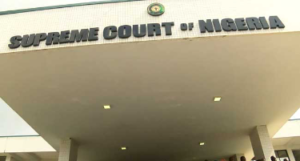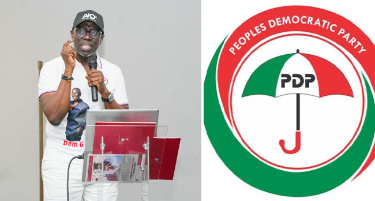The Court of Appeal in Abuja has upheld the validity of the primary election that resulted in Asue Ighodalo being selected as the candidate of the Peoples Democratic Party (PDP) for the upcoming governorship election in Edo State. In a unanimous decision delivered by a three-man panel, the appellate court dismissed the appeal brought by the embattled Deputy Governor of the state, Philip Shaibu, stating that the appeal lacked merit.
The court’s decision reinforces the May 27 judgment of the Federal High Court in Abuja, which also refused to invalidate the governorship primary election conducted by the PDP in Edo State. The appellate court found no compelling reason to overturn the initial judgment, further awarding a cost of ₦1 million against Shaibu in favor of the respondents.
Justice James Omotosho of the Federal High Court in Abuja had previously ruled that Deputy Governor Shaibu did not possess the legal standing to challenge the outcome of the primary election. The judgment, now affirmed by the appellate court, emphasized that Shaibu failed to meet the necessary legal prerequisites to seek such a nullification.
Specifically, Justice Omotosho noted that Shaibu did not participate in the primary election he sought to contest, a fundamental requirement for any plaintiff aiming to challenge an election result in court.
According to Justice Omotosho, it is a basic principle of law that a person must be directly involved in an election to have the legal authority to dispute its outcome. In this case, Shaibu’s lack of participation in the primary election disqualified him from seeking its nullification. The court’s ruling underscores the importance of adhering to established legal criteria when challenging electoral processes.
 The legal battles surrounding the PDP’s primary election in Edo State highlight the intricate and often contentious nature of political contests in Nigeria. Asue Ighodalo’s candidacy, now legally affirmed, positions him as the PDP’s flag bearer in the forthcoming gubernatorial election, setting the stage for what promises to be a keenly contested race.
The legal battles surrounding the PDP’s primary election in Edo State highlight the intricate and often contentious nature of political contests in Nigeria. Asue Ighodalo’s candidacy, now legally affirmed, positions him as the PDP’s flag bearer in the forthcoming gubernatorial election, setting the stage for what promises to be a keenly contested race.
The appellate court’s decision marks a significant setback for Philip Shaibu, who has been embroiled in a series of political and legal tussles. Shaibu’s attempt to overturn the primary election results reflects broader tensions within the PDP and the complex dynamics of political allegiance and power struggles in Edo State.
For the respondents and the PDP, the court’s decision is a victory that consolidates their candidate’s position and provides legal clarity ahead of the governorship election.
As the political landscape in Edo State continues to evolve, the ramifications of this ruling will undoubtedly influence the strategies and alliances of various stakeholders in the run-up to the election.The affirmation of Ighodalo’s candidacy by the appellate court serves as a reminder of the critical role that judicial processes play in upholding the integrity of electoral systems.
It also underscores the necessity for political actors to engage within the bounds of legal frameworks to resolve disputes and advance their political objectives.




